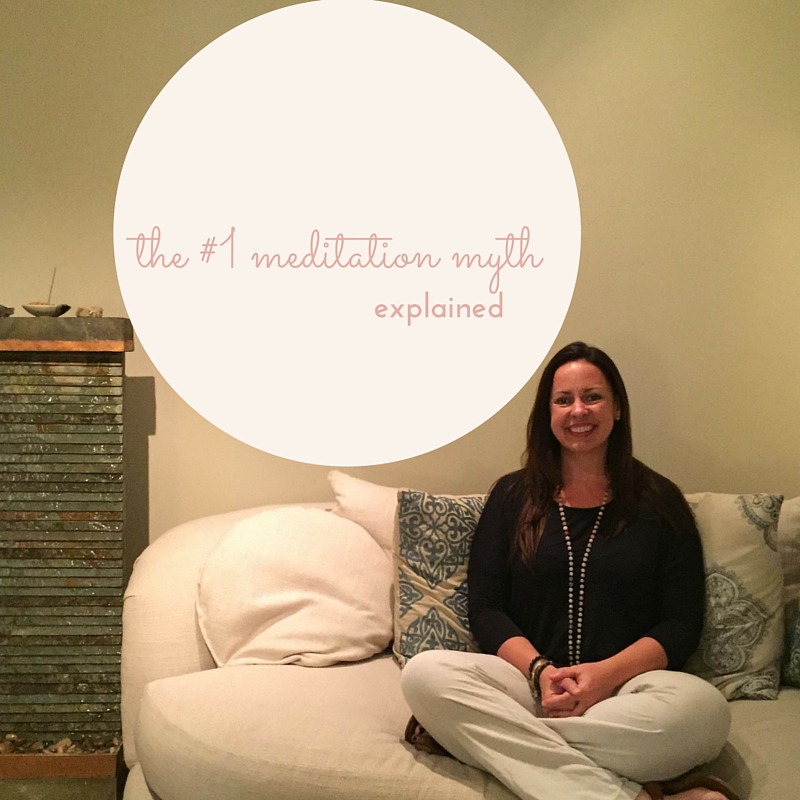As a meditation teacher and acupuncturist I have heard many reasons as to why people don’t meditate when I ask if they have ever tried it as a stress reduction practice. The most popular answer is, “I’m not religious" or "it’s against my religion,” followed by, “I couldn’t stop thinking when I tried it, once.” My responses: "Meditation doesn’t have to have anything to do with religion if you don’t want it to" and "I’m glad you still have thoughts because it means you would be dead otherwise." My replies are met with elation and sometimes pure confusion....
Think of meditation as a practice that teaches you to slow down your reactions to your own thoughts, so that you begin to observe them rather than react to them. (Click to tweet.) Most of us are held hostage by the emotions provoked from 50,000-80,000 thoughts a day we encounter within ourselves--70% of which are the same thoughts repeated.
Imagine if you could just observe rather than react? You could save your brain and your body a lot of unnecessary biochemical reactions!
With regular practice, meditation becomes a mind workout that strengthens you mentally and, eventually, makes you more emotionally intelligent when used as a tool to dig deeper into your own psyche and conditioning. You begin to learn quite a bit about yourself when you take the time to ask yourself questions like, “Who am I?” and “What do I want in this life?” and then sit quietly and observe rather than judge or engage the answers rising up within. It only seems scary because most of us were never introduced to this conscious questioning as children. Or it may feel uncomfortable because somewhere down the line we had an experience that conditioned us to associate this stillness and questioning with a certain religion different from what was familiar to us.
The beauty of meditation is that, while it does not have to be affiliated with or considered a religious practice, it is used in various religions as ritual to center the mind in order to hear God. It doesn’t really matter if you think you are waiting to hear the voice of God or not, because the point of meditation is not to achieve some sort of experience during the actual meditation, but to bring you into present moment awareness and increase mental and emotional clarity the other 23 hours of the day when you’re not meditating. With a continued practice it becomes easier to stay present in stressful situations rather than fighting or flighting. You begin to have more creative solutions to challenges life presents rather than viewing them as problems with no way out.
I’ve taught people from all walks of life to meditate-- from executives to sports phenoms, to vets, to priests (yes, priests), to would-be-stressed-out 30-something moms from all walks of life. After giving meditation a try, no one has ever told me that they wished they hadn’t learned to meditate or that they thought it would interfere with their religious or non-religious beliefs.
Most people that have existing religious or spiritual beliefs say that meditation brought them closer to their chosen path and that, when they participated in worship they were better listeners. After a continued meditation or mindfulness practice, atheists and agnostics have reported feeling less stressed physically, mentally and emotionally. Personally, I’ve never run across anyone that couldn’t use a little less stress reaction in their lives!
If you are intrigued hop over to the meditation tab on ladypotions.com and give this week's meditation on Letting Go a try. You also can find this week's mediation embedded below.
So let go of your preconceived notions about meditation and give it a try. It might be the very best thing you’ve ever done for yourself!


